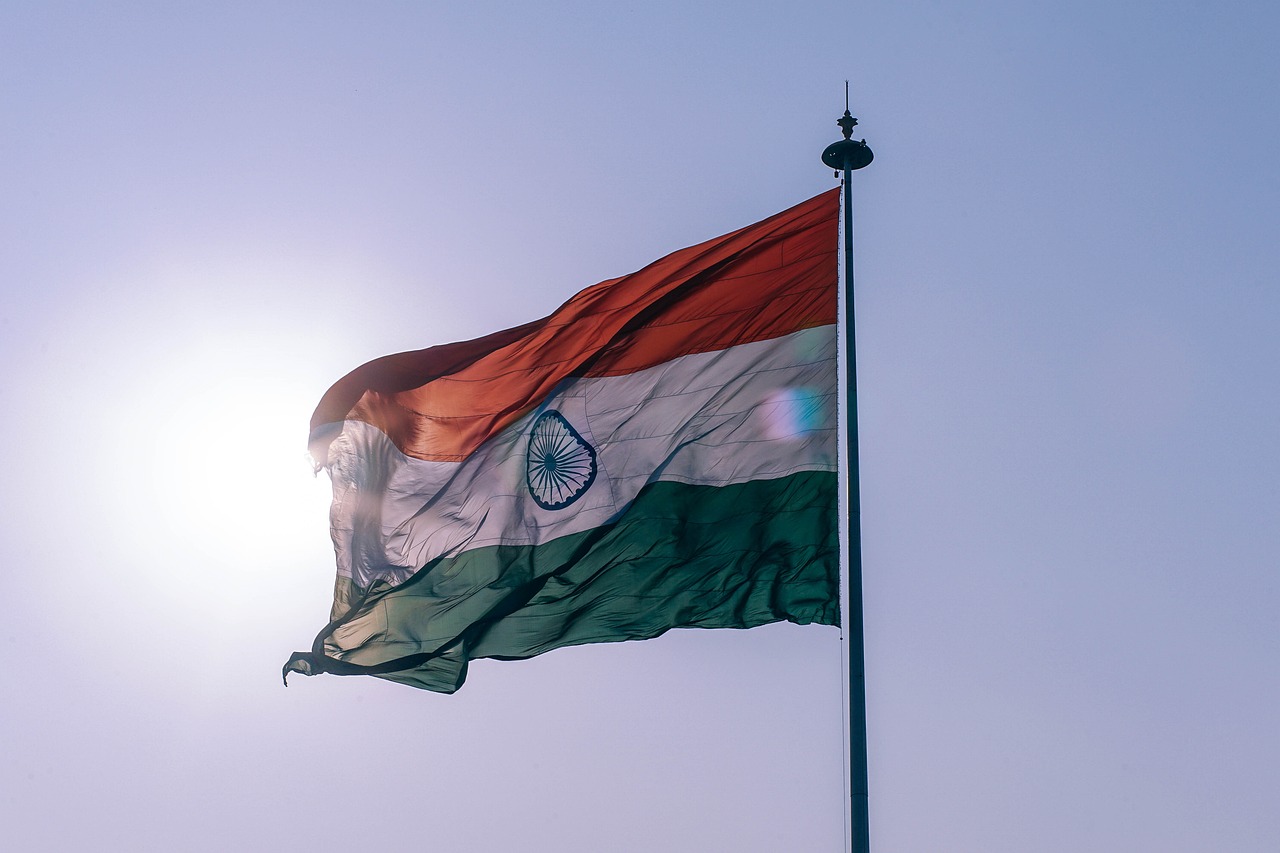
Ada Dyndo conducts an interview with Shairee Malhotra on India’s role in G20. Shairee Malhotra serves as a Coordinator of the T20 India Taskforce on Reformed Multilateralism for India’s G20 presidency.
Ada Dyndo: How would you explain India’s focus on the Global South during its G20 presidency?
Shairee Malhotra: The Global South has been a key focus during India’s G20 presidency. While it is understandable that the Russia-Ukraine war is a major concern globally, there are equally pressing challenges confronting the world including climate change, supporting the SDGs, and debt crises. Many of these challenges disproportionately impact nations of the Global South that represent 85% of the world’s population and require urgent attention. India’s goal was to have a constructive G20 aiming to collaborate on issues that pertain to development and impact most of humanity. In this context, India hosted the Voice of Global South Summit to amplify issues confronting developing countries. At the same time, India has also increasingly acted as a “bridge” between the North and South.
Ada Dyndo: What, according to you, could be the most lasting legacy of India’s G20 presidency?
Shairee Malhotra: India’s G20 presidency has had a unique focus on Africa in tandem with its broader focus on the Global South. PM Modi has pushed for full G20 membership of the African Union – a crucial step towards reforming multilateralism. This is conceptually feasible, since the European Union is already a member of the G20.
The logic is simple and sound – a Union of 55 countries with a population of over 1.3 billion people cannot be marginalised in a forum where global challenges such as sustainable development, economic recovery, and climate change – many of which disproportionately affect the African continent – are being deliberated upon. To contextualise, the EU has a population of less than 450 million. To enhance the legitimacy and effectiveness of the G20 as well as empower the African continent and its immense potential, the inclusion of the African Union as a G20 member is an important step towards a more representative global governance architecture. The G20 decision-making process is based around consensus between all member states. If the remaining countries agree with India’s proposal, this would be a crucial legacy from India’s G20 presidency.
Ada Dyndo: India identified several priorities for its G20 presidency. What are the three most important ones from the perspective of EU-India cooperation?
Shairee Malhotra: I think multilateral reforms, and energy transition and climate change are two important areas from the perspective of EU-India relations. These are key priorities on both the G20 agenda as well as the EU-India agenda and India’s bilateral ties with EU member states.
The Paris Agreement increased EU-India convergence, resulting in climate change becoming a central pillar in the partnership. Since then, India and Europe are working together through a number of bilateral agreements with the EU but also member states such as Italy, Germany, Sweden, in renewables as well as newer technologies such as green hydrogen. With their collaborative experiences, India and the EU present a compelling case of North-South cooperation, which is a prerequisite to achieving progress on many global challenges.
That multilateralism is in crisis is no secret, and for middle powers India and the EU, multilateral reforms are crucial. India is the world’s fastest growing economy and a stable world order is vital for further growth. The EU is itself a multilateral construct based on the rule of law. China and Russia’s assertive actions and respective weaponisation of trade and energy have only increased the need for an effective rules-based order that amongst other goals, secures supply chains and enables an open and stable Indo-Pacific region through which a majority of world trade now transits through.
Ada Dyndo: How is India contributing to the peace efforts in Ukraine?
Shairee Malhotra: India has condemned the conflict due to its disruptive impact everywhere but particularly on countries in the Global South in the form of the crisis of the three F’s – food, fuel, fertilisers. In sync with this position, India’s focus has been on finding a solution and urging for diplomacy and dialogue to prevail, while reiterating the core principles of the UN Charter of territorial integrity and sovereignty. India has also played a behind-the-scenes role in many instances, such as defusing the situation around Ukraine’s Zaporizhzhia nuclear power plant, and in the UN-led grain deal between Russia and Ukraine. Besides this, India has provided significant humanitarian assistance to Kyiv in the form of medical equipment and other relief supplies. In today’s volatile geopolitical context, India represents a much-needed reasonable voice urging for a return to the negotiating table.
Ada Dyndo: Do you think a G20 joint communiqué from the upcoming G20 Leaders’ Summit will be achievable?
Shairee Malhotra: Wording on the G20 communiqué will be challenging to navigate in a polarised forum, but remember it was PM Modi’s statement that “today’s era is not the era of war” that made its way into the final communiqué at the G20 summit in Bali last year. India is on the side of peace and will try to navigate the communiqué in sync with its position and focus on finding a solution to the conflict. Either way, a joint statement is certainly not the only way to measure success. Pushing the needle forward on technical reforms is just as important.
Ada Dyndo: You were involved in Think20 India – an official Engagement Group of the G20 that brings together think tanks and high-level experts to discuss policy issues relevant to the G20. As Coordinator of Task-force 7 (TF7): ‘Towards Reformed Multilateralism: Transforming Global Institutions & Frameworks’, how was your experience?
Shairee Malhotra: Think20 India’s Task-force 7 on Reformed Multilateralism brought together experts from 18 of the world’s top institutions to deliberate reforms for a multilateral order in crisis. This is perhaps amongst the most difficult topics under the G20 ambit given the critical importance of multilateralism on the one hand, and the general cynicism and pessimism that surrounds it on the other.
The work-streams under TF7 included UN reforms, digital governance, WTO reforms and policy coordination between multilateral groupings. It was a wonderful learning experience to coordinate the TF7 deliberations throughout the year and liaise with such eminent global scholars, beginning with the T20 inception conference and culminating in the T20 summit in Mysuru. The policy recommendations are captured in the Taskforce 7 statement, which is available here: https://t20ind.org/wp-content/uploads/2022/11/Task-Force-7-digital.pdf.
These recommendations now need to be translated into action for global governance to become more effective. This will be an ongoing process that will continue as Brazil – another country from the Global South – takes over the G20 baton from India.
On my part, I am extremely grateful for this opportunity and past year to make my small contribution to the nation and India’s G20 presidency.

Shairee Malhotra is Associate Fellow, Europe with the Observer Research Foundation’s (ORF) Strategic Studies Programme in New Delhi.
Shairee has several years experience working in Brussels – the headquarters of the European Union, at the European Institute for Asian Studies (EIAS), and at the European External Action Service (EEAS) – the official foreign policy arm of the EU – where she was selected at a success rate of only 1% for non-EU nationals.
Her writings and views have been featured in Haaretz, Hindustan Times, The Independent, Forbes, The Hindu, WION, EU Observer, Brussels Times, South China Morning Post, The Diplomat, The National Interest, Deccan Herald, LSE, Caravan amongst other prestigious platforms.
Shairee was recently awarded as a Top 40 Under 40 EU-India Leader by the Europe India Centre for Businessu & Industry (EICBI) for shaping the growth of EU-India relations.

Ada Dyndo od ponad dziewięciu lat mieszka w Indiach wspierając polskich i indyjskich przedsiębiorców oraz instytucje. Dzięki znajomości lokalnych realiów, szerokiej sieci kontaktów i doświadczeniu w biznesie oraz komunikacji, oferuje usługi doradcze polskim i indyjskim firmom oraz organizacjom (adadyndo.com). Pracowała w Indiach m.in. jako Kierowniczka Zagranicznego Biura Handlowego PAIH w Mumbaju, Główna Konsultantka w European Business and Technology Centre w Nowym Delhi; obecnie reprezentuje Indyjsko Polską Izbę Gospodarczej (IPCCI) jako Dyrektorka India Desk. Ada jest także założycielką platformy networkingowej WICCI’s India-EU Business Council, wspierając obecność kobiet w biznesie. Ada jest również autorką publikacji o rynku indyjskim i doświadczoną organizatorką misji biznesowych oraz wydarzeń branżowych. Za swoje działania została wyróżniona w gronie Top 40 Leaders Under 40 przez Europe India Centre for Business and Industry oraz nagrodzona Women Leaders Award przez Her Key. Ada jest indolożką z dwoma dyplomami magisterskimi z Uniwersytetu Warszawskiego. Studiowała w Nepalu, Indiach i Tajlandii, zna hindi i urdu. Obecnie mieszka w Puducherry na południu Indii.
czytaj więcej
Chiny poszukują efektywnej obrony przed dronami
3 września br. w Pekinie odbyła się defilada upamiętniająca 80. rocznicę zwycięstwa nad Japonią w II wojnie światowej. Chińska Armia Ludowo-Wyzwoleńcza miała okazję zaprezentować swój najnowszy sprzęt, wśród którego pojawiły się również systemy przeznaczone do zwalczania dronów.
Grzegorz GleńForbes: Rok 2022. Co na nas czeka w Azji na styku gospodarki i polityki?
Pandemia dobitnie pokazała, że należy spodziewać się rzeczy pozornie niespodziewanych. Sygnały ostrzegające przed gwałtowną zmianą często pojawiają się z dużym wyprzedzeniem. Podobnie jednak jak z wróżbami wyroczni delfickiej, stają się zrozumiałe dopiero po fakcie. Dokąd zaprowadzą nas obserwowane obecnie trendy w przyszłym roku?
Paweł BehrendtSprawa Morza Południowochińskiego to jeden z najbardziej istotnych punktów zapalnych w regionie Azji i Pacyfiku, obszar niezwykle ważny w sensie strategicznym i gospodarczym dla państw graniczących z akwenem, a także dla największych światowych mocarstw – USA i Chin.
Tydzień w Azji #217: Xi Jinping przypieczętował koniec ery Denga w Chinach
Przegląd Tygodnia w Azji to zbiór najważniejszych informacji ze świata polityki i gospodarki państw azjatyckich mijającego tygodnia, tworzony przez analityków Instytutu Boyma we współpracy z Polskim Towarzystwem Wspierania Przedsiębiorczości.
Tydzień w Azji #175: Największy eksporter LNG i węgla robi zielony zwrot
Przegląd Tygodnia w Azji to zbiór najważniejszych informacji ze świata polityki i gospodarki państw azjatyckich mijającego tygodnia, tworzony przez analityków Instytutu Boyma we współpracy z Polskim Towarzystwem Wspierania Przedsiębiorczości.
Patrycja Pendrakowska dla Observer Research Foundation o kryzysie politycznym wokół wyborów w Polsce
W swoim artykule Patrycja Pendrakowska opisuje kryzys polityczny w Polsce, który toczy się wokół zaplanowanych w maju wyborów prezydenckich mimo panującej epidemii koronawirusa.
Patrycja PendrakowskaPaweł Behrendt z wywiadem dla OtokoClub o porozumieniu RCEP
Na łamach portalu OtokoClub ukazało się nagranie wywiadu z Pawłem Behrendtem, w którym opowiada o Regional Comprehensive Economic Partnership - porozumieniu o wolnym handlu części państw Azji i Oceanii.
Paweł BehrendtTydzień w Azji #259: Wojna stworzyła nowe strategiczne okazje dla Polski
Przegląd Tygodnia w Azji to zbiór najważniejszych informacji ze świata polityki i gospodarki państw azjatyckich mijającego tygodnia, tworzony przez analityków Instytutu Boyma we współpracy z Polskim Towarzystwem Wspierania Przedsiębiorczości.
Tydzień w Azji #248: Joe Biden i Xi Jinping zachowali się jak wiceministrowie
Przegląd Tygodnia w Azji to zbiór najważniejszych informacji ze świata polityki i gospodarki państw azjatyckich mijającego tygodnia, tworzony przez analityków Instytutu Boyma we współpracy z Polskim Towarzystwem Wspierania Przedsiębiorczości.
Tydzień w Azji #284: Z Niemiec płynie bardzo ważna lekcja dla Polski. Chodzi o sposób na Chiny
Przegląd Tygodnia w Azji to zbiór najważniejszych informacji ze świata polityki i gospodarki państw azjatyckich mijającego tygodnia, tworzony przez analityków Instytutu Boyma we współpracy z Polskim Towarzystwem Wspierania Przedsiębiorczości.
Azjatech #25: Chiny stawiają na produkcję śmigłowców
Azjatech to cotygodniowy przegląd najważniejszych informacji o innowacjach i technologii w krajach Azji, tworzony przez zespół analityków Instytutu Boyma we współpracy z Polskim Towarzystwem Wspierania Przedsiębiorczości.
Jak prowadzić badania społeczne w Chinach? – subiektywny przewodnik po pobycie w CASS
Mimo rosnącego zainteresowania Państwem Środka, ciągle niewielu polskich naukowców decyduje się na prowadzenie badań za Wielkim Murem.
Patrycja PendrakowskaPrzegląd Tygodnia w Azji to zbiór najważniejszych informacji ze świata polityki i gospodarki państw azjatyckich mijającego tygodnia, tworzony przez analityków Instytutu Boyma we współpracy z Polskim Towarzystwem Wspierania Przedsiębiorczości.
Przegląd Tygodnia w Azji to zbiór najważniejszych informacji ze świata polityki i gospodarki państw azjatyckich mijającego tygodnia, tworzony przez analityków Instytutu Boyma we współpracy z Polskim Towarzystwem Wspierania Przedsiębiorczości.
RP: Kazachstan stawia na MSP. Również polskie
Najmocniejszy gospodarczo kraj w Azji Centralnej chce postawić na małe i średnie firmy. To one mają stanowić trzon nowego modelu gospodarczego.
Jerzy OlędzkiAre “Climate Refugees” (Just) About Climate?
As the awareness of the scale and pervasiveness of climate impacts on human societies keeps rising, so does the frequency with which the terms “climate refugees” and “climate migrants” are being used in the public discourse “to describe those who are being displaced due to adverse consequences related to climate change” (Atapattu, 2020). One might be forgiven to think these terms – given their apparent utility and ubiquity – are purely descriptive and conveniently straightforward. Not quite. And contesting their seeming obviousness is key to tackling the issues that they purport to describe.
Dawid JuraszekKwartalnik Boyma – nr 1 (7) /2021
Oddajemy do rąk naszych Czytelników i Czytelniczek pierwsze w 2021 r. wydanie „Kwartalnika Boyma”. Ten numer postanowiliśmy poświęcić zagadnieniom związanym z kobietami i kobiecością w Azji – nie tylko ze względu na to, że numer wydajemy w marcu, a 8 marca obchodzony jest Międzynarodowy Dzień Kobiet, ale również ze względu na to, że wokół nas toczy się wiele debat dotyczących feminizmu i praw kobiet.
Azjatech #166: Koreańscy giganci technologiczni znaleźli się w potrzasku
Azjatech to cotygodniowy przegląd najważniejszych informacji o innowacjach i technologii w krajach Azji, tworzony przez zespół analityków Instytutu Boyma we współpracy z Polskim Towarzystwem Wspierania Przedsiębiorczości.
Forbes: Bezrobocie, kryzys i widmo wojny. Czy to koniec „chińskiego cudu”?
Słabe ożywienie gospodarcze po zniesieniu drakońskiej polityki zero covid, pełzający kryzys na rynku nieruchomości, który może rozlać się na inne sektory gospodarki. Czy to koniec ery szybkiego wzrostu Państwa Środka?
Paweł BehrendtAdrian Zwoliński w Telewizji wPolsce o pułapce zadłużenia w kontekście Chin
Gościem programu Aleksandry Rybińskiej był ekspert Instytutu Boyma Adrian Zwoliński. Analityk opowiadał o zagadnieniu popularnie określanym "pułapką zadłużenia" w odniesieniu do pożyczek udzielanych przez Chińską Republikę Ludową
Adrian ZwolińskiWill 2023 be the year of improving relations between Albania and South Korea?
In April 2021, the 30 years of establishing diplomatic relations between the Republic of Korea (ROK) and Albania was officially organized in the South Korean embassy in Athens, the capital of Greece. The localization of these official festivities perfectly pictured the nature of the relations between these two countries.
Nicolas LeviChiny – USA na Morzu Południowochińskim
Wojna handlowa jest tylko jednym z aspektów konfrontacji między Stanami Zjednoczonymi i Chińską Republiką Ludową. Wiele aspektów tej rywalizacji zbiega się na Morzu Południowochińskim.
Paweł BehrendtRP: Korea Południowa, czyli ciastko z fasoli może być słodkością
Południowokoreański cud gospodarczy to szansa dla polskich eksporterów. Jak przygotować się do wejścia na południowokoreański rynek? Warto poznać panujące tam trendy, które promieniują na całą Azję Wschodnią.
Andrzej PieniakTydzień w Azji #223: Wielka chińska izolacja. Przepisy antyszpiegowskie uderzą w inwestorów
Przegląd Tygodnia w Azji to zbiór najważniejszych informacji ze świata polityki i gospodarki państw azjatyckich mijającego tygodnia, tworzony przez analityków Instytutu Boyma we współpracy z Polskim Towarzystwem Wspierania Przedsiębiorczości.


